| " I expect a lot of questions will be answered relatively soon." -- Nashville Mayor John Cooper says there's "a lot of momentum" in the investigation
Welcome to the "Face the Nation" Five at Five newsletter. Scroll down for your five takeaways from today's broadcast with moderator Margaret Brennan on CBS. Did someone forward you this? Sign-up at cbsnews.com/email. 1. Nashville explosion: Mayor Cooper discusses motive in bombing 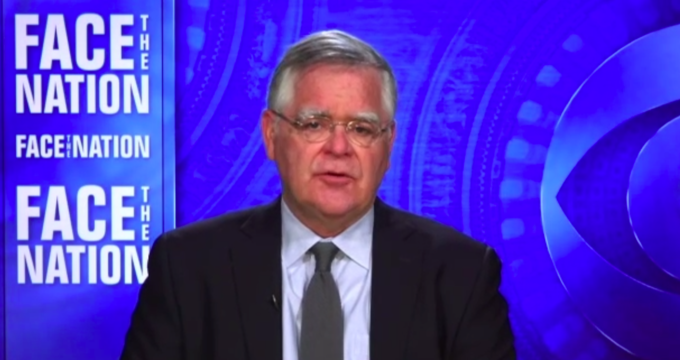 Nashville Mayor John Cooper said Sunday he believes there is a "lot of momentum" in the ongoing investigation into the bombing that rocked a section of Nashville on Christmas Day. CBS News previously confirmed Nashville resident Anthony Quinn Warner as a person of interest in the case. What we asked: Is there any update yet on the motive behind this bombing or who carried it out? What Cooper said: "Everybody feels like there is a lot of momentum behind the investigation, and I expect a lot of answers- a lot of questions will be answered relatively soon. We've got hundreds of agents on the ground working very hard. Why it matters: As former FBI counterintelligence associate director Frank Figliuzzi later explained on today's "Face the Nation", we should expect to "fairly quickly see" Warner evolve from a "person of interest to the subject of the investigation" as law enforcement awaits DNA results from tissue found at the explosion site. 2. Former FBI official warns of "copycat" actors after Nashville 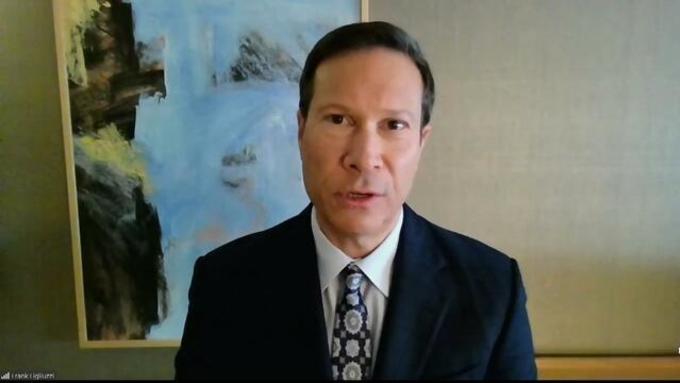 Frank Figliuzzi, former associate director for counterintelligence at the FBI, told "Face the Nation" that the notion of a potential "copycat" of the Nashville bombing is "very real and we should be concerned about it." What we asked: How easy is it to make a bomb of that scale and do it underneath the radar without law enforcement knowing this threat was there? What Figliuzzi said: "I think this is a wake up call and a warning for all of us about how vulnerable our infrastructure is, how relatively easy it is for a single individual to do this. Now, we've concentrated, post 9/11 on- on getting our hands around all the chemical companies, mass orders of precursors for known explosives. And look what an individual can do on his or her own when they simply unmask quantities of things that are under the radar screen. So here's the takeaway with this. The public has to be extremely vigilant about those around them that are talking about acting out where that might be able to do this. Shop owners and companies who are seeing smaller orders of precursors, that's where our vulnerability- our vulnerability is. And, Margaret, the notion of a copycat seeing what's happened in Nashville and trying to do this themselves is very real. And we should be concerned about that." Why it matters: Figliuzzi pointed to the Oklahoma City bombing as a direct example of one bad actor carrying out an attack of his size and magnitude. He later stressed "it's not the last time we'll see this, but we should be thankful that this happened with very few deaths." 3. Gottlieb's prediction: Grim month ahead 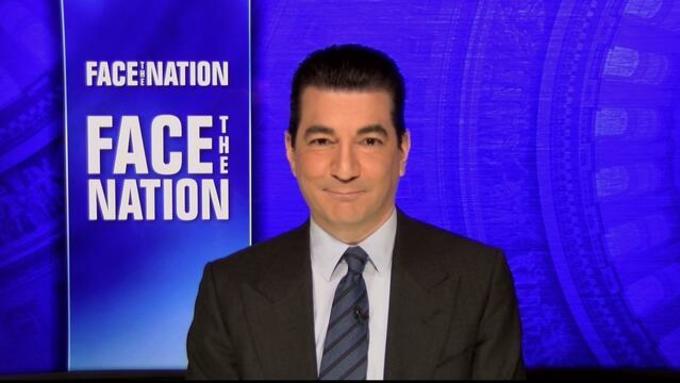 Dr. Scott Gottlieb, the former commissioner of the Food and Drug Administration, said Sunday that the U.S. is facing a "grim month" as coronavirus infections continue to surge along the East and West coasts What we asked: Where are we at this point? What are you thinking now? What Gottlieb said: "There are signs that the number of new daily cases is starting to plateau. It might be an extended plateau, but we're seeing a leveling off in new cases right now. Some of that is the holiday effect. It's underreporting around the holidays. But there is a discernible trend that we were taking even into the holidays. But, once again, the number of hospitalizations and the number of deaths is likely to lag by about two to three weeks. So even if we start to see a plateau in cases and a decline in the first week in January, it's really not going to be towards the end of January that we start to see the burden on hospitals begin to lessen and we start to see deaths plateau. So we have a grim month ahead of us. We have a very difficult month ahead of us. And right now the cases are being led by the coasts: California, Massachusetts, New York, New Jersey to some extent. When you look at the Midwest, when you look at the Great Lakes region, Illinois, Michigan, you're starting to see cases come down quite discernibly. So the places where the infection was first are now- it's now slowing and it's the East Coast and the West Coast and Florida as well, where cases are still building." Why it matters: The number of coronavirus cases in the United States is nearing 19 million, while the death toll from the pandemic surpassed 332,000, according to Johns Hopkins University. Infections are spiking in California, Massachusetts, New York and Florida, while they are beginning to decrease across the Midwest and the Great Lakes region. Public health officials, meanwhile, are warning that the country should prepare to confront the most difficult days of the pandemic, even as two coronavirus vaccines developed by Pfizer and Moderna are being administered to health care workers and residents of long-term care facilities. 4. Governors bridge party divides to fight against COVID 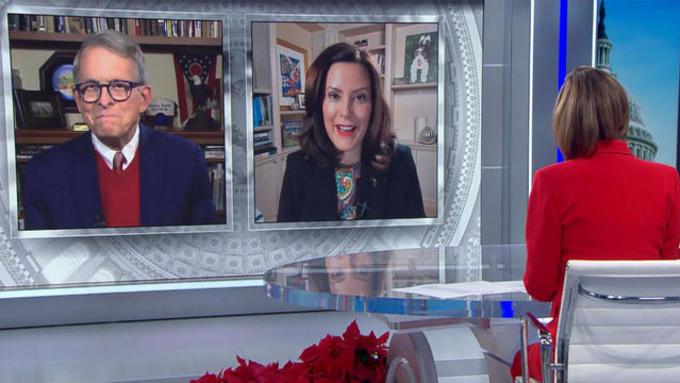 In the 10 months the coronavirus has spread across the United States, governors have come together to fight a "common enemy," leaning on one another to navigate the pandemic, Michigan Governor Gretchen Whitmer and Ohio Governor Mike DeWine said as they reflected on the challenges they faced addressing the extraordinary public health crisis. What we asked: Do you feel like the country learned this year the value of their local government? What Whitmer said: "I know that this is not a moment that any one of us governors would have chosen to be in, and yet it was incumbent on us to rise to this challenge and to do what we needed to do to protect the people that we serve. In lieu of a broader national strategy, it really was on us to navigate. And I think we've done a lot of it together." What DeWine said: "I think one of the things that I have found good about it, frankly, is that I've gotten to know Gretchen, Governor Whitmer. I've got to know all of our neighboring governors. And, you know, we talk quite a bit. And frankly, you know, we have a common enemy. The common enemy is this virus. And we're, you know, we're battling back against it. There are certainly some people in my state who, you know, disagree with some of the things that we have done." Why it matters: Governors have been at the helm of the response to the pandemic, implementing orders to mitigate the spread of the virus while grappling with the economic fallout of the once-in-a-century public health crisis. While states have implemented varying degrees of measures to limit the spread of the coronavirus, no state has been spared. 5. A "Face the Nation" Tradition: Our annual book panel 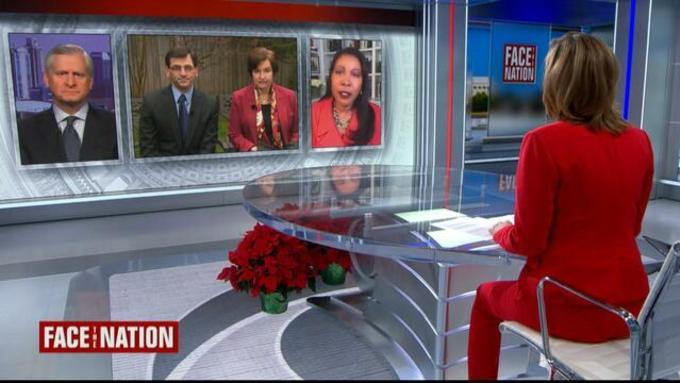 Each year we talk to authors whose new books have all been named some of the year's best. This year, as part of the "Face the Nation" tradition, we sat down with Jon Meacham, Peter Baker, Susan Glasser and Isabel Wilkerson for a discussion on race, leadership, and what's next for a divided country. Watch the full discussion here. Web Extra: CBS News Washington correspondents share 2021 predictions 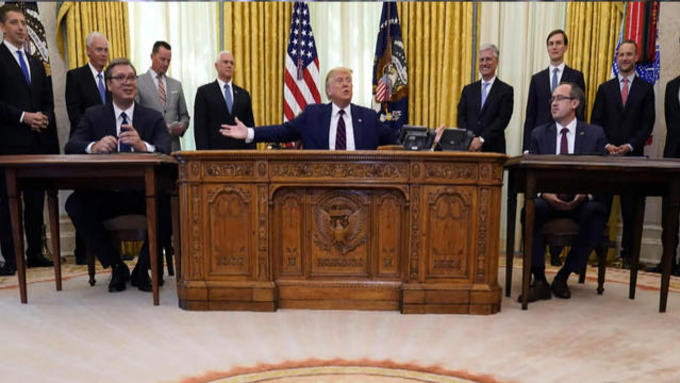 Our program's annual panel looking ahead went virtual this year. From the 2020 election to the devastating pandemic, CBS News Washington correspondents discussed a year of breaking news and what to expect in 2021. Watch here. Plus, our correspondents revisited what they felt were some of the most underreported stories of 2020 here.
| 
No comments:
Post a Comment